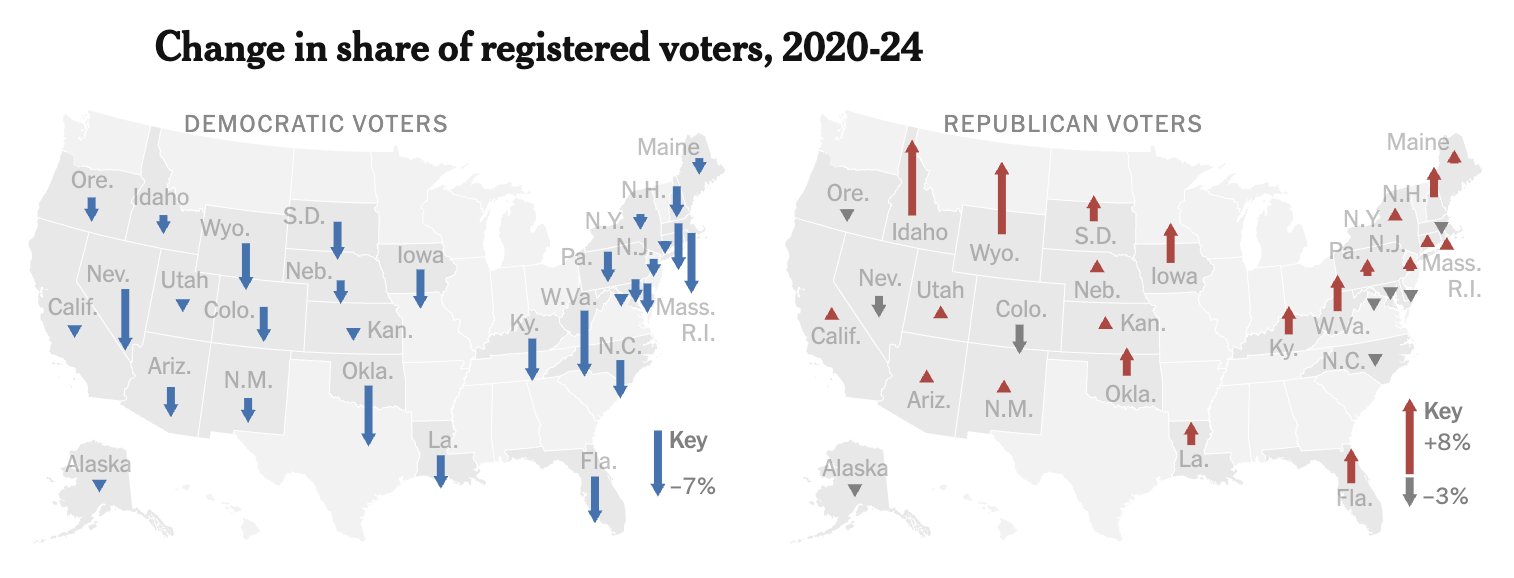A new analysis by The New York Times highlights a significant and largely underreported challenge for Democrats: a steady decline in voter registration compared with Republicans in most of the country. Of the 30 states that record voter registration by party, Democrats lost ground to Republicans in 29 between 2020 and 2024, marking a sharp shift in partisan affiliation.
The scale of the change is considerable. According to the Times, Republicans gained a net advantage of about 4.5 million registered voters over that four-year period. Analysts note that the gap could take Democrats years to close, underscoring a structural problem that extends beyond individual election cycles.
The data suggests this is not an isolated trend in a handful of competitive areas. Instead, the movement away from the Democratic Party has been recorded across battleground states as well as reliably blue and red states. The findings, based on registration records compiled by the nonpartisan firm L2, point to a broader realignment that could have major implications for upcoming elections.
“Few measurements reflect the luster of a political party’s brand more clearly than the choice by voters to identify with it — whether they register on a clipboard in a supermarket parking lot, at the Department of Motor Vehicles or in the comfort of their own home. And fewer and fewer Americans are choosing to be Democrats. In fact, for the first time since 2018, more new voters nationwide chose to be Republicans than Democrats last year,” the article said.
The analysis showed that Democrats lost 2.1 million registered voters in the 30 states with party registration, as well as Washington, D.C., from 2020 to 2024. In contrast, Republicans gained 2.4 million voters during the same period.

The analysts at The Times noted that there are still more registered Democrats than Republicans across the country. However, this discrepancy is primarily due to California, where residents can register by political party, unlike states such as Texas, which is a Republican stronghold and does not have this option. Nonetheless, Democrats are extremely concerned about the recent significant shift toward conservatism.
“I don’t want to say, ‘The death cycle of the Democratic Party,’ but there seems to be no end to this,” Michael Pruser, who looks at voter registration closely as the director of data science for Decision Desk HQ, an election-analysis site, went on to say. “There is no silver lining or cavalry coming across the hill. This is month after month, year after year.”



